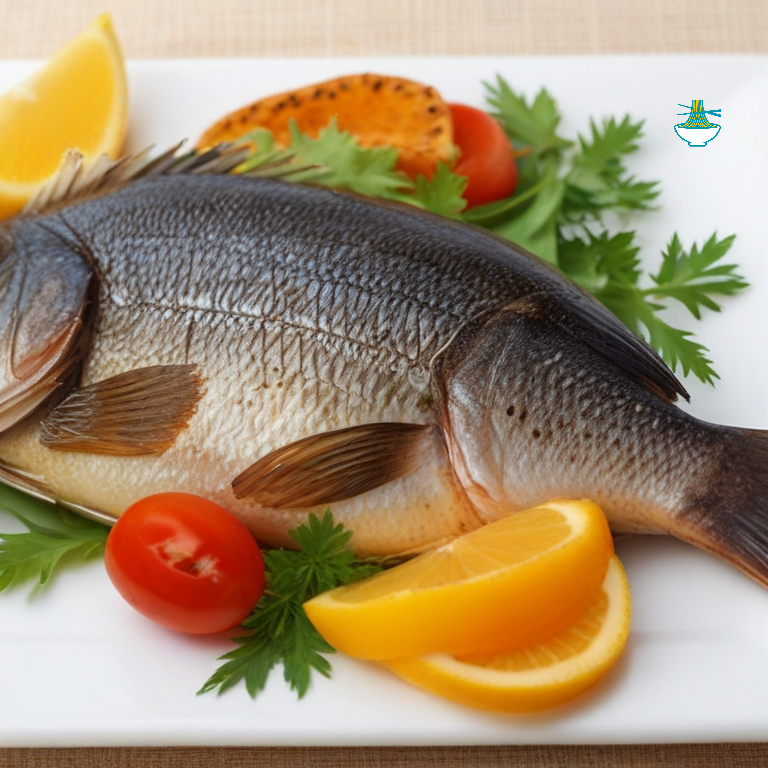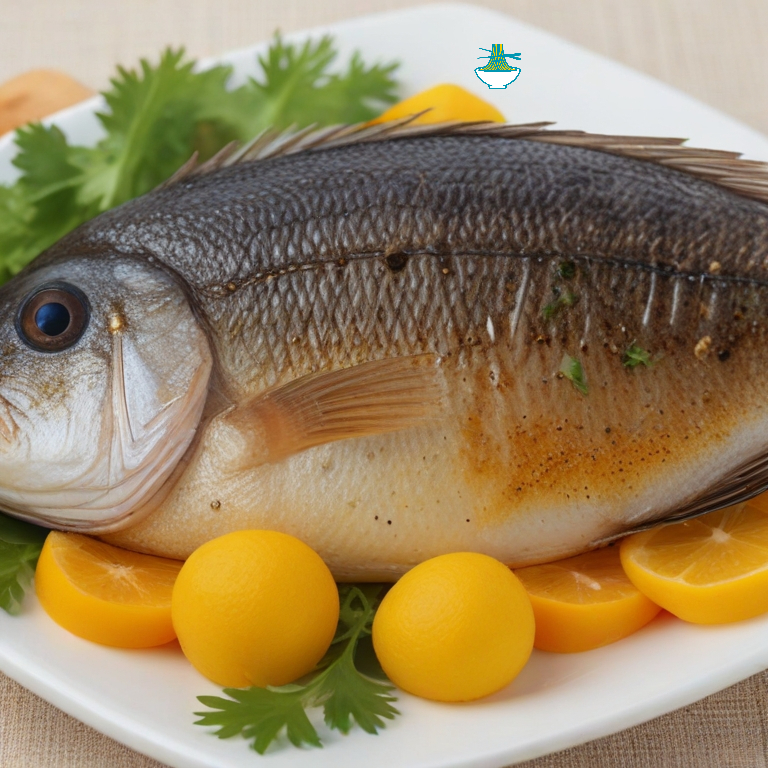This recipe features Bream Fish, a freshwater fish commonly grilled or fried. The ingredients include bream fish, salt, pepper, and olive oil for grilling or frying. The method involves seasoning the fish, grilling or frying it until cooked through, and serving hot.
Bream fish have been a staple in freshwater fishing communities for centuries. The practice of grilling or frying them likely originated as a simple and flavorful way to prepare this nutritious fish. Over time, various seasoning methods and cooking techniques have evolved, but the essence of grilling or frying bream fish remains a popular culinary tradition in many cultures.
Ingredients:
- Bream fish (freshwater, cleaned and scaled)
- Salt
- Pepper
- Olive oil (for grilling or frying)

Method of Preparation:
1. Preheat your grill or frying pan.
2. Season the bream fish generously with salt and pepper.
3. If grilling, brush the grill grates with olive oil to prevent sticking. If frying, heat olive oil in a pan over medium heat.
4. Place the seasoned bream fish on the grill or in the frying pan.
5. Grill or fry the fish for about 5-7 minutes per side, or until the flesh is opaque and flakes easily with a fork.
6. Remove the fish from the grill or pan and serve hot.
Nutrition Value:
1. Bream Fish:
- Calories: 110 kcal
- Carbohydrates: 0 grams
- Protein: 22 grams
- Fat: 1.5 grams
- Sodium: 60 mg
- Cholesterol: 55 mg
- Vitamins and Minerals: Contains vitamins like vitamin D and vitamin B12, as well as minerals like selenium and phosphorus.
- Nutritional Benefits: Rich source of high-quality protein, omega-3 fatty acids, vitamins, and minerals.
2. Salt:
- Calories: 0 kcal
- Carbohydrates: 0 grams
- Protein: 0 grams
- Fat: 0 grams
- Sodium: Varies based on the type of salt, but on average, 1 teaspoon of salt contains about 2300 mg of sodium.
3. Pepper:
- Calories: 0 kcal
- Carbohydrates: 0 grams
- Protein: 0 grams
- Fat: 0 grams
- Sodium: 0 mg
- Cholesterol: 0 mg
- Vitamins and Minerals: Contains vitamins like vitamin C and vitamin A, along with minerals like magnesium and potassium.
- Nutritional Benefits: Good source of fiber, antioxidants, and overall health support.
4. Olive Oil:
- Calories: Varies based on the amount used, about 120 kcal per tablespoon (15 ml).
- Carbohydrates: 0 grams
- Protein: 0 grams
- Fat: 14 grams (mostly monounsaturated fats)
- Sodium: 0 mg
- Cholesterol: 0 mg
- Vitamins and Minerals: Contains vitamin E and antioxidants.
- Nutritional Benefits: Important source of monounsaturated fatty acids, part of a healthy diet, may help reduce harmful cholesterol levels and support heart health.


Comments